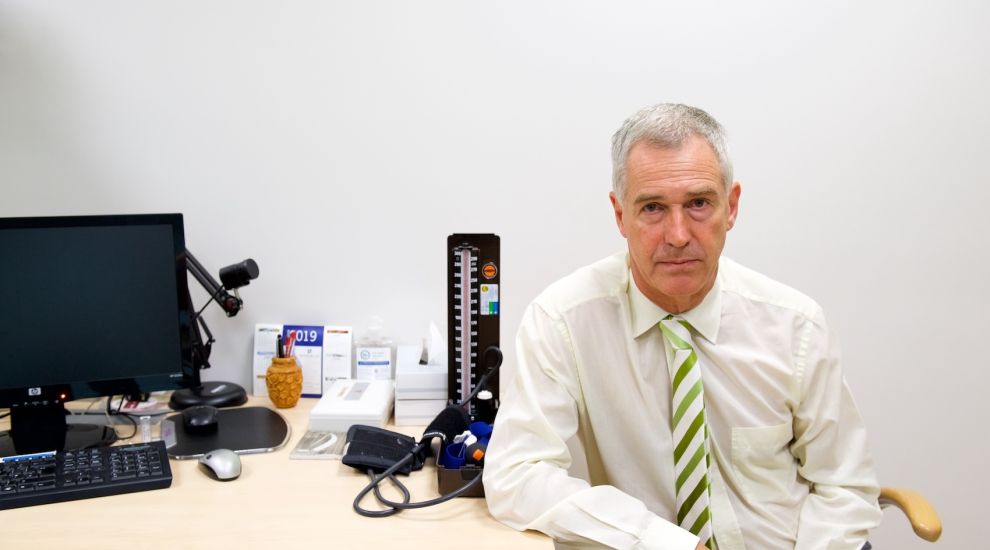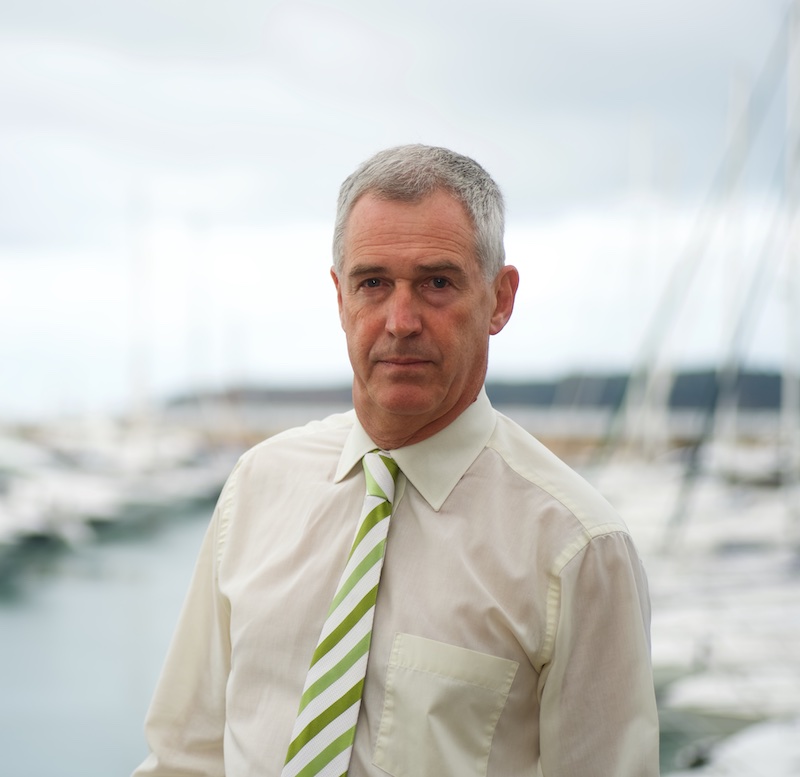


As a practising GP, I welcome the upcoming debate on the proposals for a safe and compassionate assisted dying service in Jersey.
Like the majority of islanders, I am convinced the law must change.
While I have some reservations about the current scope of the proposals, I am immensely proud to live in a jurisdiction that is prepared to listen to its residents and develop a suite of end-of-life options that is fit for the 21st Century.
Why should we be content to force some people to suffer against their wishes, when hundreds of millions of people around the world have access to laws that allow terminally ill, mentally competent adults to make choices about how their lives end?

Pictured: Dr Nigel Minihane was a local GP for more than 30 years and is the former head of Jersey's Primary Care Body.
I have studied the growing body of evidence which shows how assisted dying for terminally ill people not only offers control to those who have a request approved (around 1% of people who die) but also brings comfort and reassurance to many more who know the option is there if they need it.
Assisted dying can be a catalyst for improvements to palliative care and leads to a strengthening of the doctor-patient relationship through encouraging honest and open conversations about death and dying.
I am firmly of the view that the option of assisted dying is a crucial piece of the puzzle in how we ensure people have the tools they need to have a good death. The possibility that, as a doctor, I might be able to play a role in supporting someone to have their final wishes respected is a great responsibility, but also an immense privilege.
Some of us have come together as a group – Healthcare Professionals for Assisted Dying in Jersey – so that we can consider our potential role in legislation. We all back a change in the law but our aims go beyond amplifying the well-rehearsed ‘for’ and ‘against’ arguments.
We want to ensure the law we pass works for dying people in Jersey, their families and health and care professionals. We hope to support States Members think through the practical details of the legislation they pass and what will be necessary to include in subsequent training and guidance.

Pictured: "We hope to support States Members think through the practical details of the legislation they pass and what will be necessary to include in subsequent training and guidance."
Sadly, I have seen in recent weeks the misinformation that too often pollutes this debate. To clarify, doctors no longer swear by the Hippocratic Oath, which is an archaic text of limited relevance to modern medicine. We are instead bound by the Declaration of Geneva, which places a duty on the profession to have utmost respect for the autonomy of the people we care for.
Doctors are also routinely required to assess capacity and ensure people have a settled and voluntary wish for a particular course of action, often in life and death decisions such as the refusal of treatment. Every day we follow processes to safeguard and protect people. Assisted dying would be a new service, but it would not present any challenges that doctors and other professionals are not well-equipped to meet.
I am disappointed that some of these misconceptions have been propagated by doctors themselves, who – presumably, taking into account their vocal opposition to any form of law change – have no intention themselves of supporting their patients with an assisted dying request should it become a legal option.
It has been useful to glean external knowledge from doctors on both sides of the debate. We should, of course, seek to learn from others where their experience is relevant, but how we cater to the needs of dying people in Jersey is ultimately a decision for our society to make.

Pictured: "I am disappointed that some of these misconceptions have been propagated by doctors themselves."
I will always defend the right of my colleagues to conscientiously object from participating in any aspect of an assisted dying law. Indeed, I am sure that dying people who wish to access this choice want to know that they will be supported by someone who shares their values. Equally it is important we respect the rights of those who do want to be involved.
I would like to reassure residents that there are doctors and other health and care professionals in Jersey who are prepared to participate in assisted dying in some form should the law change, which will of course depend on the final law States Members pass.
On Wednesday 24 April 2024, 5.15pm to 7pm, there will be an information session in the town centre where health and care professionals can learn more about the proposals that States Members will be voting on. The following Wednesday there will be a similar online event.
Health and care professionals can book a place at these events and find out more details by emailing assisteddying@gov.je.
I will be attending the session and would encourage anyone who is keen to be involved in our group to attend so that you can meet likeminded professionals and help shape the future of end of life in Jersey.
Dr Nigel Minihane has been a local GP for more than 30 years and is the former head of Jersey's Primary Care Body.